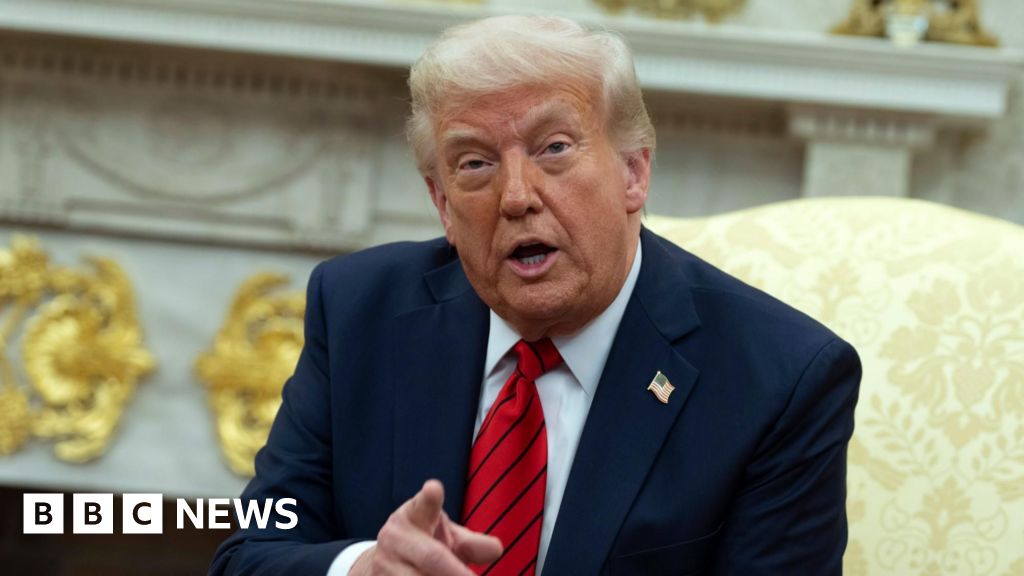Kilmar Abrego Garcia's Tattoos Spark Controversy Amid Deportation Debate

The topic of tattoos has recently entered the political spotlight as President Donald Trump increasingly cites them as indicators of gang membership, particularly in his efforts to deport undocumented migrants from the United States. This controversial approach has garnered substantial criticism from experts who argue that it is both misleading and flawed.
One of the most notable cases in this ongoing debate is that of Kilmar Abrego Garcia, a 29-year-old man originally from El Salvador, who was deported back to his home country on March 15. His removal occurred despite an active immigration court order that was meant to block his deportation. Trump took to social media to highlight Garcia's tattoos, sharing an image of his knuckles that allegedly showcased the letters 'MS-13.' In a statement, Trump remarked, This is the hand of the man that the Democrats feel should be brought back to the United States, because he is such a fine and innocent person. They said he is not a member of MS-13, even though hes got MS-13 tattooed on his knuckles... I must be allowed to do my job. MAKE AMERICA GREAT AGAIN!
However, this reliance on tattoos as a sign of gang affiliation has raised red flags among law enforcement officials and experts. Joseph Kenny, the chief of detectives at the New York Police Department, emphasized to The New York Times, A tattoo itself is never sufficient evidence to prove a person is a member of a criminal group. This cautionary stance is particularly relevant in light of the growing practice by U.S. immigration officials, who are reportedly employing a 10-point scoring system to assess potential gang ties. Under this system, tattoos can earn a subject four points, and accumulating eight points can lead to expedited removal without a formal hearing, as delineated under the Alien Enemies Act.
In one troubling instance, a Venezuelan makeup artist named Andry Jose Hernandez Romero was deported to El Salvador based solely on the presence of tattoos that read Mom and Dad within decorative crowns. This raises critical questions about the fairness and accuracy of such evaluations, especially when it comes to tattoos that might merely reflect personal significance rather than gang affiliation.
Experts on Venezuelan street culture further complicate the issue. While certain tattoos, such as clocks, skulls, or train imagery, have been associated with the Tren de Aragua gang, five expertsincluding police officials and academicstold The New York Times that tattoos alone should not be viewed as definitive indicators of gang membership. It is common for young men in Venezuela to acquire tattoos for a variety of reasons unrelated to gang involvement.
The case of Kilmar Abrego Garcia has ignited intense debate, particularly after a video investigation by The New York Times debunked viral conspiracy theories suggesting that Garcia's finger tattoos formed the letters MS-13 using a combination of a marijuana leaf, smiley face, cross, and skull. Reports have indicated that ICE officials were not aware of any such symbols being correlated with gang activity. However, an arrest report from ICE did reference other tattoos, including motifs like skulls with covered eyes, ears, and mouthsoften known as the see no evil motifas well as a devil with horns, which were interpreted as signs of seniority within MS-13. Additionally, Garcias choice of a Chicago Bulls cap was also mentioned as a potential indicator of gang affiliation.
Despite a Supreme Court ruling that upheld a lower courts directive to reverse Garcia's deportation, the Biden administration has resolutely maintained its stance. White House Press Secretary Karoline Leavitt remarked on Wednesday, Abrego Garcia will never live in the United States of America, while accusing him of having gang ties.
In a more ironic twist, El Salvador's President Nayib Bukele took to social media to mock allegations regarding mistreatment of Garcia, posting photos depicting him enjoying margaritas alongside Senator Chris Van Hollen. Kilmar Abrego Garcia, miraculously risen from the death camps & torture, now sipping margaritas with Sen. Van Hollen, Bukele quipped on X.
Legal experts have raised further concerns regarding the admissibility of tattoos as evidence in court. According to Ryan Brackley, an assistant district attorney in Colorados Arapahoe County, while tattoos can be revealing, they should not form the basis for law enforcement decisions and accusations. Similarly, John Colello from the Los Angeles County DAs gang homicide division echoed this sentiment, stating, Facts and context are obviously important. Tattoos alone, or lack of tattoos, do not necessarily mean a person is, or is not, a gang member.




























